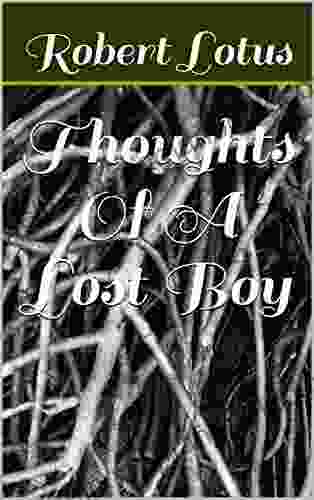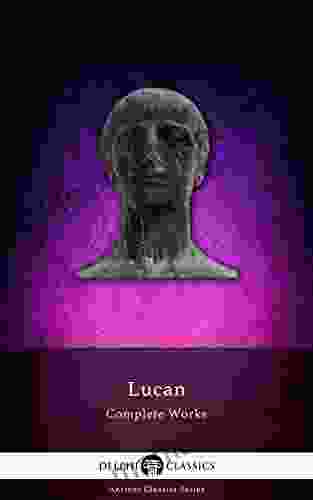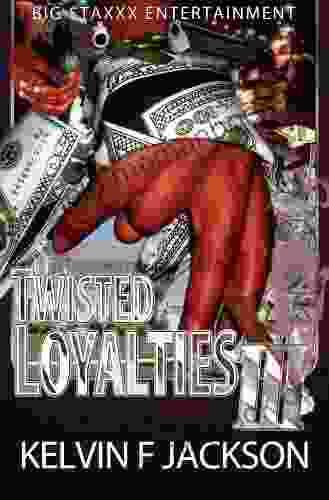Twisted Loyalties: Exploring the Dark Side of Human Allegiance

4.5 out of 5
| Language | : | English |
| File size | : | 300 KB |
| Text-to-Speech | : | Enabled |
| Screen Reader | : | Supported |
| Enhanced typesetting | : | Enabled |
| Word Wise | : | Enabled |
| Print length | : | 126 pages |
| Lending | : | Enabled |
Loyalty, a virtue often celebrated and idealized, is the unwavering support and allegiance to a person, group, or cause. However, beneath its noble façade lies a sinister undercurrent, where loyalty can become twisted and distorted. Twisted loyalties are those that lead individuals to betray their values, principles, and even their own sense of right and wrong.
This article delves into the complex and often unsettling world of twisted loyalties. We explore the psychological conflicts, societal pressures, and ethical dilemmas that arise when loyalties are tested. By examining the dark side of human allegiance, we gain a deeper understanding of our own motivations, biases, and the fragility of our moral compass.
Unveiling the Psychological Roots
Twisted loyalties often stem from deep-seated psychological needs and vulnerabilities. One such need is the desire for belonging. When individuals feel disconnected or isolated, they may latch onto groups or ideologies that provide them with a sense of identity and purpose. This can lead to blind loyalty, where members prioritize the group's interests over their own.
Another psychological factor that contributes to twisted loyalties is the fear of ostracism. Individuals may remain loyal to toxic or abusive relationships or groups out of a fear of being rejected or marginalized. This fear can silence their inner voice and prevent them from questioning the group's actions.
Furthermore, cognitive dissonance plays a role in sustaining twisted loyalties. When individuals witness or participate in actions that conflict with their values, they experience psychological discomfort. To resolve this discomfort, they may rationalize or justify the group's behavior, even if it means compromising their own principles.
Societal Influences and Pressures
Twisted loyalties are not solely the result of individual psychology. Societal norms and expectations can also contribute to their formation. In many cultures, loyalty to family, tribe, or nation is deeply ingrained. This can lead to conflicts between personal values and societal obligations.
Moreover, social conformity plays a significant role. Individuals may adopt the loyalties of their peers or conform to group norms out of a desire to fit in. This can lead them to compromise their own independence and critical thinking abilities.
Political and ideological polarization further exacerbates twisted loyalties. When societies become divided along political or ideological lines, individuals may feel pressured to align themselves with one faction over another. This can result in heightened hostility and a breakdown of civil discourse.
Ethical Dilemmas and Moral Conflicts
Twisted loyalties often present individuals with profound ethical dilemmas. When loyalties conflict with fundamental moral principles, such as justice, honesty, or compassion, individuals face excruciating choices.
For example, a police officer may be torn between loyalty to their fellow officers and upholding the law. A doctor may struggle to reconcile loyalty to their patients with the need to comply with unethical medical practices. Such conflicts can test the limits of morality and force individuals to confront their own values.
Furthermore, twisted loyalties can lead to moral blindness. When individuals prioritize group loyalty over ethical considerations, they may become incapable of recognizing the harm they inflict. This can result in atrocities and injustices that would otherwise be abhorrent to them.
Beyond the Abyss: Breaking the Cycle
Breaking the cycle of twisted loyalties requires a multifaceted approach. It involves promoting critical thinking, fostering ethical awareness, and nurturing empathy.
Critical thinking skills allow individuals to evaluate information objectively, identify biases, and make informed decisions. By encouraging individuals to question authority and challenge groupthink, we can help them resist the lure of blind loyalty.
Ethical awareness involves instilling a deep understanding of moral principles and values. Education and exposure to diverse perspectives can help individuals develop a strong moral compass and recognize when loyalties conflict with their ethical obligations.
Empathy fosters the ability to understand and share the feelings of others. By promoting empathy, we can encourage individuals to consider the consequences of their actions on those they are loyal to and on society as a whole.
Twisted loyalties are a dark and complex phenomenon that exposes the fragility of human allegiance. They arise from psychological needs, societal pressures, and ethical dilemmas, and can lead individuals to betray their values and principles.
Understanding the nature of twisted loyalties is crucial for navigating the complexities of human relationships and social dynamics. By recognizing the psychological roots, societal influences, and ethical implications of twisted loyalties, we can work towards breaking the cycle and promoting a society where loyalty is a force for good rather than a path to destruction.
4.5 out of 5
| Language | : | English |
| File size | : | 300 KB |
| Text-to-Speech | : | Enabled |
| Screen Reader | : | Supported |
| Enhanced typesetting | : | Enabled |
| Word Wise | : | Enabled |
| Print length | : | 126 pages |
| Lending | : | Enabled |
Do you want to contribute by writing guest posts on this blog?
Please contact us and send us a resume of previous articles that you have written.
 Top Book
Top Book Novel
Novel Fiction
Fiction Nonfiction
Nonfiction Literature
Literature Paperback
Paperback Hardcover
Hardcover E-book
E-book Audiobook
Audiobook Bestseller
Bestseller Classic
Classic Mystery
Mystery Thriller
Thriller Romance
Romance Fantasy
Fantasy Science Fiction
Science Fiction Biography
Biography Memoir
Memoir Autobiography
Autobiography Poetry
Poetry Drama
Drama Historical Fiction
Historical Fiction Self-help
Self-help Young Adult
Young Adult Childrens Books
Childrens Books Graphic Novel
Graphic Novel Anthology
Anthology Series
Series Encyclopedia
Encyclopedia Reference
Reference Guidebook
Guidebook Textbook
Textbook Workbook
Workbook Journal
Journal Diary
Diary Manuscript
Manuscript Folio
Folio Pulp Fiction
Pulp Fiction Short Stories
Short Stories Fairy Tales
Fairy Tales Fables
Fables Mythology
Mythology Philosophy
Philosophy Religion
Religion Spirituality
Spirituality Essays
Essays Critique
Critique Commentary
Commentary Glossary
Glossary Bibliography
Bibliography Index
Index Table of Contents
Table of Contents Preface
Preface Introduction
Introduction Foreword
Foreword Afterword
Afterword Appendices
Appendices Annotations
Annotations Footnotes
Footnotes Epilogue
Epilogue Prologue
Prologue Frank Mccourt
Frank Mccourt Susanne Hope
Susanne Hope William L Lassiter
William L Lassiter Coral Harper
Coral Harper Jonathan S Burgess
Jonathan S Burgess Julie Evans
Julie Evans Brian Evenson
Brian Evenson Anne Schlosser
Anne Schlosser Anne R Keene
Anne R Keene Tien Tzuo
Tien Tzuo Yogesh Chandra
Yogesh Chandra Jim Van Houten
Jim Van Houten Rumiko Takahashi
Rumiko Takahashi Emma Curtis Hopkins
Emma Curtis Hopkins Paul Kalanithi
Paul Kalanithi Susan Hall
Susan Hall Mary Grace Fahrun
Mary Grace Fahrun Isabel Thomas
Isabel Thomas Christine Debbie Brown
Christine Debbie Brown Melanie Notkin
Melanie Notkin
Light bulbAdvertise smarter! Our strategic ad space ensures maximum exposure. Reserve your spot today!

 Devon MitchellThoughts of a Lost Boy: Exploring the Complexities of Childhood Trauma and...
Devon MitchellThoughts of a Lost Boy: Exploring the Complexities of Childhood Trauma and...
 Percy Bysshe ShelleyLymphedema Wrapping Made Simple: A Comprehensive Guide by Marier Farley
Percy Bysshe ShelleyLymphedema Wrapping Made Simple: A Comprehensive Guide by Marier Farley Julian PowellFollow ·11.9k
Julian PowellFollow ·11.9k Carl WalkerFollow ·10k
Carl WalkerFollow ·10k Kelly BlairFollow ·12.9k
Kelly BlairFollow ·12.9k Dennis HayesFollow ·7.5k
Dennis HayesFollow ·7.5k Anton ChekhovFollow ·4.1k
Anton ChekhovFollow ·4.1k Jaime MitchellFollow ·14.7k
Jaime MitchellFollow ·14.7k Douglas FosterFollow ·9.6k
Douglas FosterFollow ·9.6k Orson Scott CardFollow ·11.8k
Orson Scott CardFollow ·11.8k

 Boris Pasternak
Boris PasternakThe Misted Mirror: Mindfulness for Schools and...
What is The Misted...

 Holden Bell
Holden BellEmbark on Thrilling Adventures in the Uncharted Depths of...
Unveiling the Enchanting...

 Seth Hayes
Seth HayesDelphi Complete Works of Lucan: Illustrated Delphi...
This meticulously edited...

 Jackson Hayes
Jackson HayesThe Enigmatic Cat Burglar: Unraveling the Intriguing...
In the annals of crime, the name Bernie...

 Quentin Powell
Quentin PowellAligned With The Cisa Review Manual 2024 To Help You...
The CISA Review Manual 2024 is the most...

 Austin Ford
Austin FordUnlocking Revenue Potential: A Comprehensive Business...
In today's digital...
4.5 out of 5
| Language | : | English |
| File size | : | 300 KB |
| Text-to-Speech | : | Enabled |
| Screen Reader | : | Supported |
| Enhanced typesetting | : | Enabled |
| Word Wise | : | Enabled |
| Print length | : | 126 pages |
| Lending | : | Enabled |








